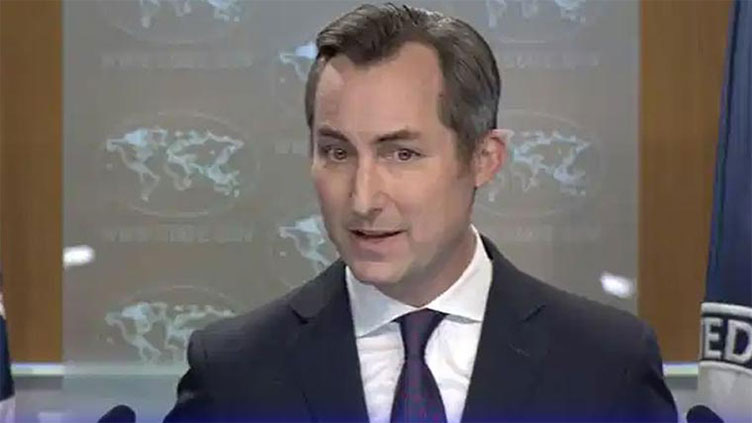US imposes more sanctions over Pakistan's missile programme

Pakistan
The sanctions freeze any US property belonging to the targeted entities
WASHINGTON (Reuters) - The United States said on Wednesday it was imposing new sanctions related to nuclear-armed Pakistan's long-range ballistic-missile programme, including on the state-owned defense agency that oversees the programme.
State Department spokesperson Matthew Miller said in a statement that the measures slapped on the National Development Complex and three firms were imposed under an executive order that "targets proliferators of weapons of mass destruction and their means of delivery."
The sanctions freeze any US property belonging to the targeted entities and bars Americans from doing business with them.
Pakistan's foreign ministry said in a statement that the US action was "unfortunate and biased" and would harm regional stability by "aiming to accentuate military asymmetries," an apparent reference to the country's rivalry with nuclear-armed India.
A State Department factsheet said the Islamabad-based NDC has sought to obtain components for the country's long-range ballistic-missile programme and missile-testing equipment.
It said the NDC "is responsible for the development of Pakistan's ballistic missiles," including the Shaheen family of missiles.
The Bulletin of the Atomic Scientists research organization says the Shaheen series of missiles is nuclear-capable.
Pakistan conducted its first nuclear-weapons test in 1998, becoming the seventh country to do so. The Bulletin estimates Pakistan's arsenal at about 170 warheads.
Islamabad has refused to sign the Non-Proliferation Treaty, the cornerstone of the international system designed to prevent the spread of nuclear weapons.
The other entities slapped with sanctions were Affiliates International, Akhtar and Sons Private Limited and Rockside Enterprise, all located in Karachi, the factsheet said.
It said the companies worked with the NDC to acquire equipment.
"The United States will continue to act against proliferation and associated procurement activities of concern," Miller said.


